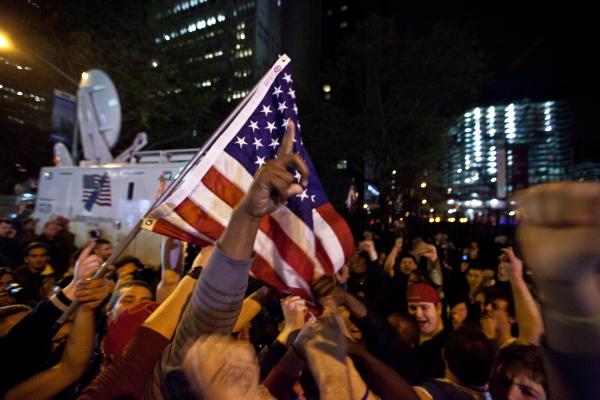May 2, 2016
On first thought, cheering someone’s death sounds vile. But if I’m honest, I’ve never been so gripped by the sentiment of patriotism as on the day that I sat around a table with more than a dozen men, only one of whom — besides myself — was American. This was the day that President Obama announced that Osama bin Laden had been killed.
Read the Full Article

Already a subscriber? Login
